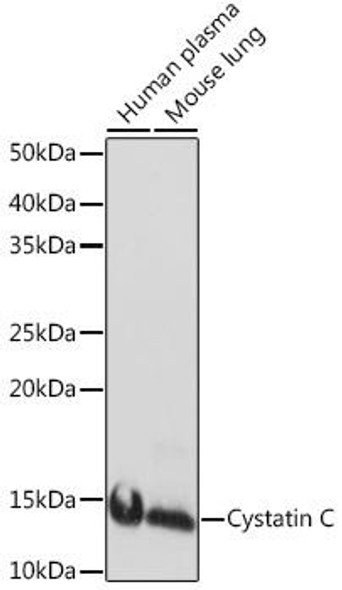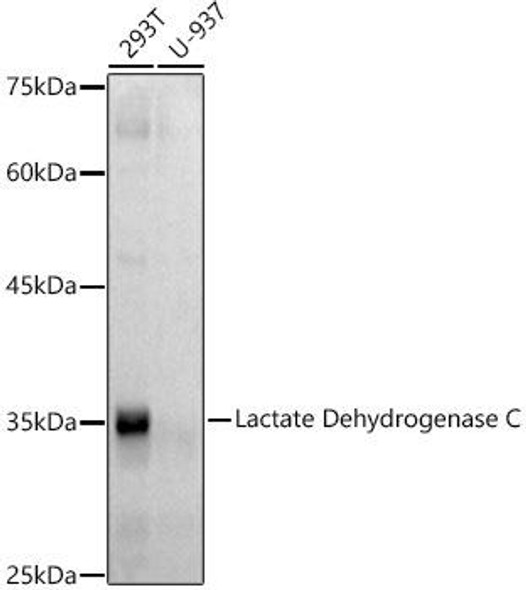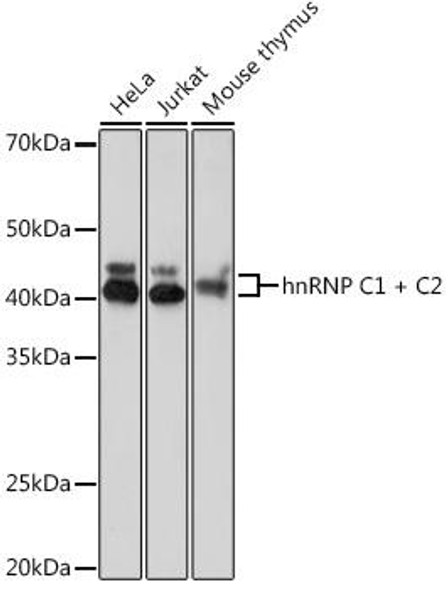HIV1 p24 Monoclonal Antibody, C-91 [91] (CPAB0410)
- SKU:
- CPAB0410
- Product Type:
- Antibody
- Antibody Type:
- Monoclonal Antibody
- Reactivity:
- Virus
- Host Species:
- Mouse
- Isotype:
- IgG1
- Clone:
- 91
Description
HIV1 p24 Monoclonal Antibody, C-91 [91] (CPAB0410)
The HIV1-p24 Antibody (CPAB0410) is a crucial tool for researchers studying the human immunodeficiency virus (HIV) and its pathogenesis. This polyclonal antibody, raised in rabbits, specifically targets the p24 protein of HIV1, which is essential for virus replication and infection. With high reactivity towards human samples, the HIV1-p24 Antibody is validated for use in Western blotting, immunofluorescence, and immunohistochemistry applications. By binding to the p24 protein, this antibody enables accurate detection and analysis of HIV1 in various cell types, providing valuable insights into the virus's life cycle and potential treatment strategies.
Given the ongoing global HIV epidemic, understanding the molecular mechanisms of HIV1 infection is crucial for developing effective antiretroviral therapies and preventive strategies. The HIV1-p24 Antibody offers researchers a powerful tool to advance our knowledge of HIV pathogenesis and accelerate progress towards combating this deadly virus.
| Product Name: | HIV1 p24 Antibody, C-91 |
| Product Sku: | CPAB0410 |
| Size: | 500μg |
| Host Species: | mouse |
| Immunogen: | r.HIV-1p24 Core |
| Clone: | 91. |
| Reactivity: | Viral |
| Applications: |
| Purification Method: | Protein A / S-Sepharose. |
| Isotype: | IgG1 |
| Background: | Human immunodeficiency virus (HIV) is a retrovirus that can lead to a condition in which the immune system begins to fail, leading to opportunistic infections. HIV primarily infects vital cells in the human immune system such as helper T cells (specifically CD4+ T cells), macrophages and dendritic cells. HIV infection leads to low levels of CD4+ T cells through three main mechanisms: firstly, direct viral killing of infected cells; secondly, increased rates of apoptosis in infected cells; and thirdly, killing of infected CD4+ T cells by CD8 cytotoxic lymphocytes that recognize infected cells. When CD4+ T cell numbers decline below a critical level, cell-mediated immunity is lost, and the body becomes progressively more susceptible to opportunistic infections. HIV was classified as a member of the genus Lentivirus, part of the family of Retroviridae. Lentiviruses have many common morphologies and biological properties. Many species are infected by lentiviruses, which are characteristically responsible for long-duration illnesses with a long incubation period. Lentiviruses are transmitted as single-stranded, positive-sense, enveloped RNA viruses. |
| Synonyms: | |
| Storage Buffer: | In lyophilized form, for long periods, store at 4°C in a dry environment. After reconstitution, if not intended for use within a month, aliquot and store at -20°C. |







